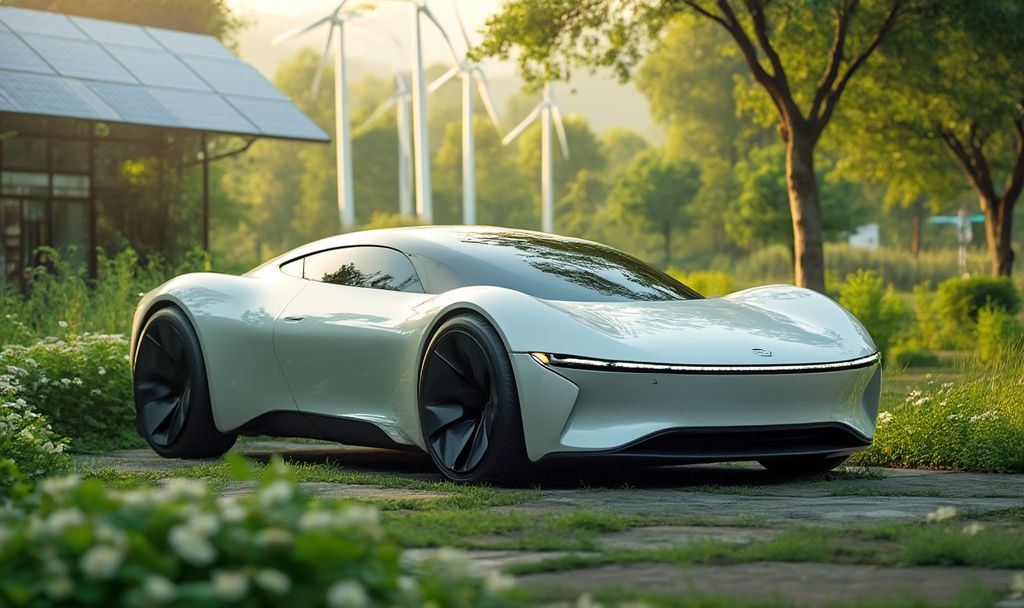Electric vehicles are transforming transportation by offering a cleaner, cost-efficient alternative to traditional cars. As environmental awareness grows, more models and compelling reasons make switching to EVs a smart choice for reducing carbon footprints and embracing innovative, sustainable technology.

Electric vehicles (EVs) are revolutionizing the way we think about cars. As more people become aware of environmental challenges and the need for sustainable solutions, EVs provide an attractive alternative to traditional vehicles. With numerous benefits and a growing variety of models on the market, there are compelling reasons to consider making the switch to an electric vehicle.
Advantages of Electric Vehicles
One of the main advantages of electric vehicles is their environmental impact. Unlike gas-powered cars, EVs produce zero emissions, contributing significantly to reducing carbon footprints. This shift plays a vital role in decreasing air pollution and combating climate change.
Additionally, electric vehicles are cost-efficient in the long run. Although the upfront cost might seem higher, owners save money on maintenance and fuel over time. With fewer moving parts, EVs require less maintenance, and charging is often cheaper than refueling with gasoline.
A Variety of Models to Choose From
The electric vehicle market is rapidly expanding, offering numerous models to fit various lifestyles and budgets. From compact cars to spacious SUVs, there’s an EV for everyone. Newer models come equipped with advanced technologies, offering superior driving experiences and longer ranges, alleviating prior concerns about range anxiety.
Whether you’re looking for a sleek city car or a family-friendly option, manufacturers continually introduce diverse choices. Popular options include Tesla’s innovative models, Nissan’s reliable Leaf, and Chevrolet’s affordable Bolt, among others.
Reasons to Make the Switch
There are several reasons why more people are choosing electric vehicles. Environmental responsibility is a significant incentive, as is the opportunity to be part of a modern technological movement. EVs offer a quiet, smooth driving experience with impressive acceleration and the latest infotainment and safety features.
Governments also support EV adoption through substantial financial incentives. In the United States, federal tax credits can save buyers up to $7,500 on new electric cars, making the transition more financially achievable.
Charging Infrastructure and Incentives
Concerns about charging infrastructure are decreasing as networks rapidly expand. Many countries are investing in more charging stations, making it more convenient for EV owners to recharge their vehicles on the go. Apps like Electroverse and PlugShare help drivers locate nearby charging points easily.
In addition to tax credits, there are numerous incentives to embrace electric vehicles, from low-emission zones offering discounted entry fees to grants for installing home charging stations. Initiatives in Europe, outlined by the ACEA, demonstrate how both consumers and governments are committed to supporting a cleaner future.
By choosing an electric vehicle, you’re adopting a mode of transport that’s better for the planet, your wallet, and future generations. As technology evolves, so do the benefits and possibilities of EVs. With the right information, making the shift becomes a rewarding decision.
Frequently Asked Questions (FAQs)
What are the main advantages of electric vehicles?
The main advantages of electric vehicles include zero emissions, cost efficiency over time due to lower maintenance and fuel costs, and smooth, quiet driving experiences with impressive acceleration.
How do electric vehicles impact the environment?
Electric vehicles produce zero emissions, which significantly reduces carbon footprints and aids in decreasing air pollution and combating climate change.
Why are governments offering incentives for electric vehicle adoption?
Governments offer incentives like tax credits and grants to encourage the adoption of electric vehicles, furthering environmental goals and supporting cleaner technologies.
Which electric vehicles are popular among consumers?
Popular electric vehicle models include Tesla’s innovative series, the reliable Nissan Leaf, and the affordable Chevrolet Bolt, among others.
How is the charging infrastructure for electric vehicles evolving?
The charging infrastructure for electric vehicles is rapidly expanding, with more charging stations being installed globally, making it increasingly convenient for EV owners to recharge their vehicles.
